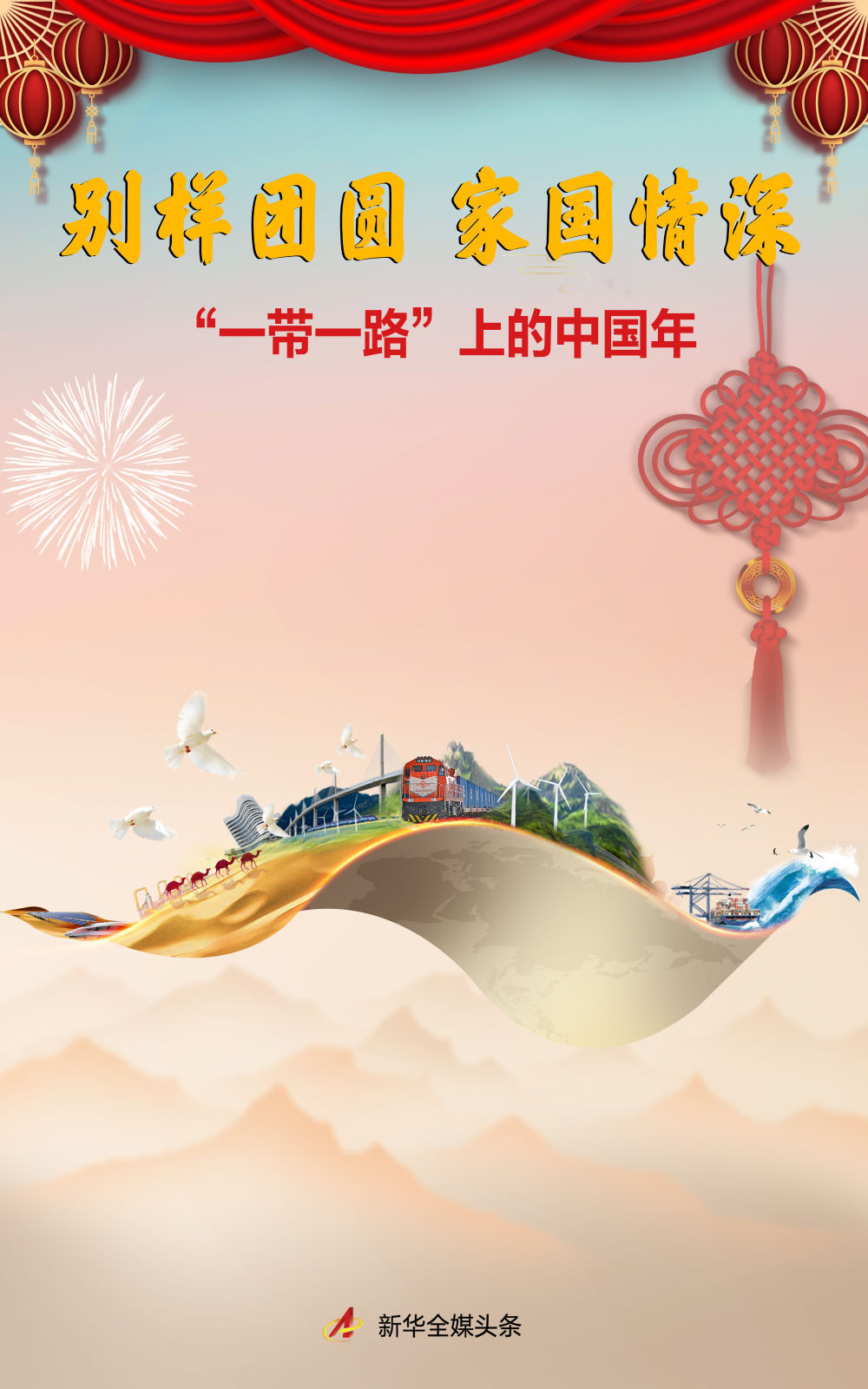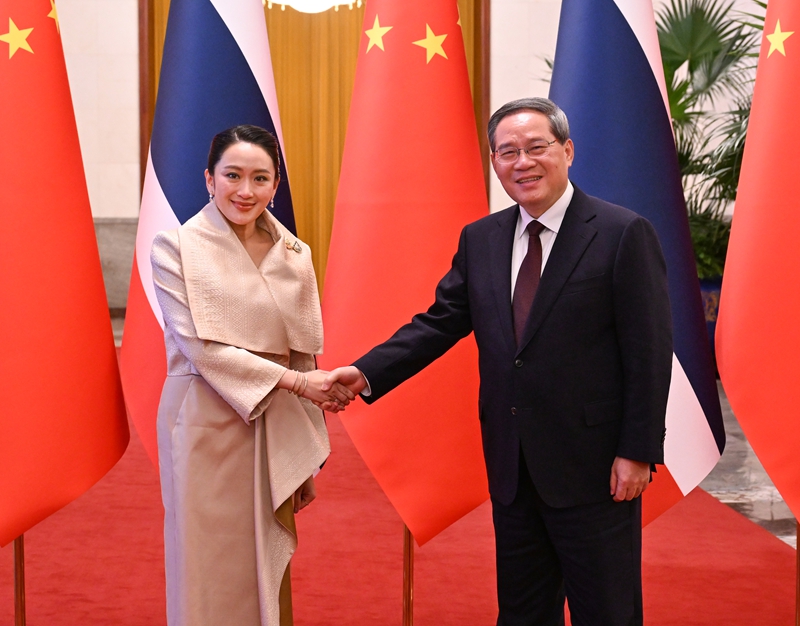American Think Tanks Analyze China And Rarely Admit That China Is Incomparable Big Game
American Think Tanks Analyze China And Rarely Admit That China Is Incomparable Big Game
In recent years, many American think tanks have come to a thought-provoking conclusion by deeply studying China's development trajectory: China is implementing a systematic global strategy, which can be divided into three key stages: first gradually weakening the United States' dominance in global affairs.
In recent years, many American think tanks have come to a thought-provoking conclusion by deeply studying China's development trajectory: China is implementing a systematic global strategy, which can be divided into three key stages: first gradually weaken the United States' dominance in global affairs, and then establish leadership in Asia, and ultimately realize its core leadership role in the global governance system.

In the economic field, China has demonstrated amazing strategic determination through the "Belt and Road" initiative. Since its launch in 2013, this grand plan has attracted active participation from 152 countries and built a huge network covering 75% of the global economy. It is worth noting that China not only provides infrastructure construction, but also provides comprehensive financial support to participating countries through supporting financial institutions such as the Asian Infrastructure Investment Bank. This dual-wheel drive model of "infrastructure finance" has greatly enhanced China's economic influence.
On the diplomatic stage, China has shown remarkable mediation capabilities. The successful promotion of historic reconciliation between Saudi Arabia and Iran in early 2023. This breakthrough progress not only reshapes the geopolitical pattern in the Middle East, but also demonstrates China's mediation capabilities as a responsible major power. At the same time, China's concept of "a community with a shared future for mankind" is gaining widespread recognition. On global issues such as climate change and public health, Chinese wisdom is providing new solutions to the world. United Nations data shows that China's proposal support rate on major international issues continues to rise, which fully reflects its growing diplomatic influence.
In terms of military modernization, China has made leapfrog development. The "Regulations on Transportation and Delivery of Military Forces" implemented in 2023 has significantly improved the efficiency of logistics support. In the latest large-scale military exercise, the Chinese army achieved an astonishing record of completing strategic material delivery within 48 hours, which shocked international military experts. What is more worthy of attention is that the Chinese Navy has developed into the largest maritime force in East Asia, and its submarine fleet is among the forefront in the world. Cooperating with the independently developed Beidou navigation system and advanced anti-ship missile technology, China has built a complete maritime defense system.
In the field of military technology, China has shown unique talent advantages. According to statistics, in key national defense research projects, doctoral students with overseas study backgrounds account for more than 40%, especially in missile technology research and development teams, this proportion is as high as 50%. This compound talent structure of "returning overseas" provides strong impetus for the innovative development of China's military science and technology. Although the U.S. military expenditure still ranks first in the world, many think tanks warn that China's military modernization speed is far beyond expectations and may pose more severe challenges in the next few years. At the same time, China actively participates in UN peacekeeping operations and carries out infrastructure construction and humanitarian rescue in Africa, the Middle East and other regions. These "soft power" measures have effectively enhanced China's international image.
In terms of cultural soft power construction, China has shown its unique oriental charm. At the opening ceremony of the 2023 Hangzhou Asian Games, the Hanfu performance "The Book of Songs" by the Qiantang River stunned the world. This visual feast that combines tradition and modernity has received more than 1 billion views on social media. At present, more than 500 Confucius Institutes around the world have become important windows for spreading Chinese culture, and international students from China are actively promoting traditional festivals such as the Spring Festival and Dragon Boat Festival around the world. It is worth noting that Chinese food culture is particularly popular. The number of applicants to learn how to make dumplings and write calligraphy overseas has been increasing year by year. This "silent and silent" cultural penetration is having a profound impact.
In contrast, the American cultural influence is facing challenges. Due to controversy in position on issues such as the Pakistan-Israel conflict, protests in the United States have occurred frequently, and even the White House is surrounded by demonstrators many times. These internal differences have seriously restricted the effect of American cultural output. The think tank analysis pointed out that China adopts a compound strategy of "using both soft and hard": establishing partnerships through mutually beneficial and win-win economic cooperation, accumulating international reputation with diplomatic wisdom, ensuring national security with military modernization, and winning people's hearts with cultural charm. This all-round strategy makes the United States difficult to deal with.
Think tank experts use Go games to describe the competitive situation between China and the United States. The United States adopted the "encirclement" strategy, focusing its strategic focus on the Indo-Pacific region, and attempting to restrict China's development by strengthening military deployment in the Taiwan Strait and the South China Sea, and holding joint military exercises with allies. However, China has shown a larger strategic vision and opened up multiple "new battlefields" around the world. Taking energy cooperation as an example, China and Russia have established a highly complementary energy partnership. Currently, Russia accounts for 17% of China's total oil imports, 23% of coal imports, and 25% of natural gas imports. This in-depth cooperation has greatly enhanced China's energy security.

The internationalization of the RMB is an important part of China's global strategy. China is actively promoting the use of RMB for energy settlement in the Middle East, and countries such as Iran have begun to use RMB to pay for oil and gas trade. As relations between Saudi Arabia and Iran ease, China's influence in the Middle East is increasing day by day. In North Africa, countries such as Egypt and Tunisia have joined the BRICS cooperation mechanism. These progress is accelerating the "de-dollarization" process, posing a challenge to the US-dominated financial system.
In the European direction, China has demonstrated superb diplomatic wisdom. Although the United States has tried to strengthen its control over Europe through NATO, there have been obvious policy differences within the EU. China accurately grasps the psychology of European countries in pursuing strategic autonomy and gradually narrows the relationship through deepening economic and trade cooperation. Data shows that the trade volume between China and Germany and China and France has maintained rapid growth for many years. Even under the pressure of the United States, major European economies still insist on maintaining close cooperation with China.

China's investment in Europe shows diversified characteristics, with a comprehensive layout from traditional infrastructure to high-tech fields. This mutually beneficial and win-win cooperation model has given European countries a taste of the sweetness. In contrast, the United States' attempt to replicate the "Marshall Plan" model to control Europe has failed. On the African continent, China has won widespread support through infrastructure construction and industrial investment, and the vast majority of African countries are more inclined to cooperate with China.
Latin America has also witnessed the increase in China's influence. China and Brazil have reached a historic local currency settlement agreement, a breakthrough move that effectively undermined the dollar's dominance in the region. At present, China has become ASEAN's largest trading partner. Latin American countries such as Mexico and Brazil have turned to strengthen cooperation with China when relations with the United States are tense. The think tank analyst believes that China adopts the "dividing and conquering" strategy, effectively differentiating the Western alliance. It is particularly noteworthy that Germany has grown into China's largest trading partner in the EU, a trend that was particularly evident during Merkel's administration.

Faced with the development needs of Africa, China has provided an attractive solution: high-quality and low-priced goods meet daily needs, and large-scale infrastructure projects promote the industrialization process.
The establishment of the Djibouti security base marks a qualitative improvement in China's overseas interests protection capabilities. In the Middle East, Muslim countries represented by Saudi Arabia showed a clear "look eastward" tendency. Saudi Arabia chose to deepen cooperation with China despite the opposition of the United States. This transformation is of great symbolic significance.
The think tank report finally proposed a reflection, suggesting that the United States adjust its strategy to China: reduce confrontation, increase cooperation, and avoid falling into the "decoupling" trap. Seek a balance in trade policy and change the practice of unilateral sanctions; seek consensus with China in the field of global governance; respect China's core interests at the diplomatic level and abandon the Cold War mentality; strengthen communication in the military field and establish a mutual trust mechanism; learn from China's experience in cultural exchanges and improve relations by increasing humanistic exchanges.
Overall, China is implementing a comprehensive rise strategy: maintain rapid development at home and continue to expand international influence. American think tanks have to admit that China's strategic planning has unprecedented systematicity and execution ability. This recognition is not polite, but an objective evaluation based on facts. The future of Sino-US relations will depend on whether the two sides can find a new model of win-win cooperation.





